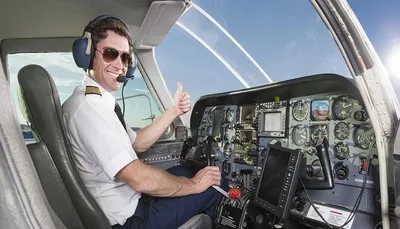Empowering Wings: How Pilot Education Empowers Aspiring Aviators.
Business 0 CommentsWarning: Trying to access array offset on value of type null in /home/59053787/domain/public_html/wp-content/themes/simple-east/content.php on line 37
In the world of aviation, where dreams take flight and the sky becomes a canvas of endless possibilities, pilot education stands as a beacon of empowerment for aspiring aviators. It is not merely the gateway to a career but a transformative journey that empowers individuals to conquer the skies with skill, confidence, and unwavering determination. If you dream of soaring through the skies, learning how to become a pilot is the first step towards turning that dream into reality. In this illuminating guide, we delve into the empowering essence of pilot education and how it equips aspiring aviators with the wings they need to soar towards a future filled with limitless horizons.
The Thrill of Empowerment: Unlocking the Passion for Flight
1. A Burning Desire to Fly
At the core of pilot education lies a burning desire to fly—the yearning to conquer gravity and experience the thrill of commanding an aircraft through the heavens.
2. The Pursuit of Excellence
Pilot education instills a pursuit of excellence in aspiring aviators, inspiring them to strive for the highest standards of skill, knowledge, and safety.
3. Confidence to Overcome Challenges
Through rigorous training and real-world experiences, pilot education empowers aviators with the confidence to face and conquer challenges both in the skies and on the ground.
Nurturing Aspirations: The Foundations of Pilot Education
1. Ground School Education
Ground school education forms the bedrock of pilot empowerment, providing theoretical knowledge in aviation principles, regulations, and navigation.
2. Flight Training Adventure
Flight training takes aspiring aviators from the classroom to the cockpit, where they experience the thrill of flight, hone their skills, and master the art of piloting.
3. Instructors as Mentors
Experienced instructors act as mentors, guiding and nurturing the dreams of aspiring aviators, inspiring them to reach new heights in their journey.
Wings of Knowledge: The Learning Process
1. Technical Expertise
Pilot education imparts technical expertise, equipping aviators with a comprehensive understanding of aerodynamics, aviation systems, and weather patterns.
2. Meteorology and Weather Awareness
Aviators are trained to interpret weather data and make informed decisions to ensure safe flights in diverse weather conditions.
3. Aeronautical Decision-Making
Pilot education fosters aeronautical decision-making skills, enabling aviators to assess risks, weigh alternatives, and make sound judgments during flights.
Safety Above All: Cultivating a Safety Culture
1. Safety Protocols and Procedures
Safety is paramount in pilot education, as aspiring aviators learn and internalize a culture of safety that guides every aspect of their flying careers.
2. Emergency Preparedness
Pilot education prepares aviators to remain calm and composed in emergency situations, empowering them to take swift and effective actions to ensure safety.
3. Human Factors Training
Understanding human factors such as stress, fatigue, and situational awareness empowers aviators to mitigate potential risks and enhance overall flight safety.
The Sky’s the Limit: Empowering Career Pathways
1. Commercial Aviation
Many aspire to join the ranks of commercial aviation, piloting passenger planes and connecting people and places across the globe.
2. Corporate and Business Flying
Corporate pilots enjoy rewarding careers, flying business executives and clients to meetings and events with precision and professionalism.
3. Aerial Specializations
Pilot education opens doors to aerial specializations such as aerial photography, aerial surveying, and aerial firefighting, empowering aviators to make a positive impact in various industries.
Empowerment Beyond Borders: Embracing Global Opportunities
1. International Flight Operations
Pilot education prepares aviators for international flight operations, navigating diverse airspace regulations and cultural nuances across borders.
2. Cultural Awareness and Communication
Understanding cultural differences and effective cross-cultural communication empower aviators to connect with people from around the world.
3. Global Humanitarian Efforts
Empowered by their pilot education, aviators can engage in global humanitarian efforts, providing aid and relief to communities in need.
Conclusion: Wings of Empowerment
Pilot education is not just about flying aircraft; it’s about unleashing the potential within aspiring aviators, empowering them to transcend the ordinary and reach for the extraordinary. The journey from ground school to the cockpit is a testament to the power of passion, knowledge, and dedication. It is a journey that empowers individuals to defy gravity, conquer the skies, and leave a lasting mark on the world of aviation.
Warning: Trying to access array offset on value of type null in /home/59053787/domain/public_html/wp-content/themes/simple-east/content.php on line 74
